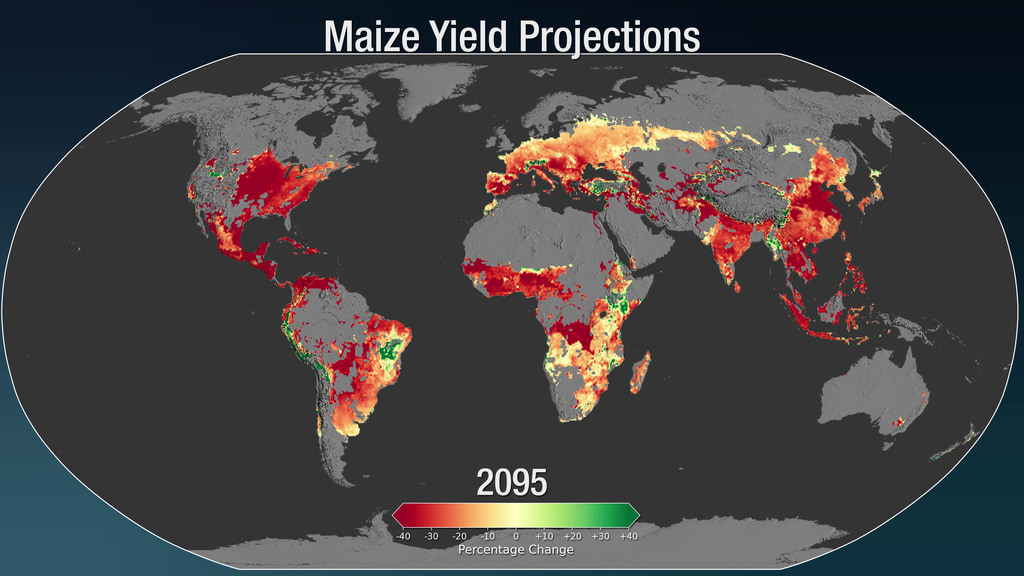Climate Change's Toll on Maize Yields and Adaptation Tactics
Hyphen Web Desk

The impact of climate change on maize is multifaceted. Elevated temperatures accelerate plant development, leading to reduced kernel size and number. Research indicates that for every degree Celsius increase in temperature, maize yields can drop by approximately 10%. This is particularly concerning in regions where maize is a primary food source and economic backbone.
Changing precipitation patterns exacerbate the issue. Regions that previously enjoyed stable rainfall are experiencing unpredictable weather, affecting maize growth stages. Both droughts and excessive rainfall can lead to poor crop performance. In areas like sub-Saharan Africa and parts of South Asia, where maize is a key crop, erratic weather has already led to significant yield reductions. For instance, the 2023 droughts in southern Africa drastically impacted maize production, pushing local communities to face food shortages.
Adaptation strategies are crucial in addressing these challenges. Scientists and agronomists are exploring various methods to enhance maize resilience. One approach involves developing heat-tolerant maize varieties. Genetic modifications and selective breeding are being used to create strains that can withstand higher temperatures and reduced water availability. These efforts have shown promise, with new maize hybrids demonstrating improved performance under stressful conditions.
Water management techniques are another critical area of focus. Implementing efficient irrigation systems and improving soil moisture retention can help mitigate the impact of irregular rainfall. Conservation agriculture, which includes practices like reduced tillage and crop rotation, also plays a role in enhancing soil health and water efficiency.
Farmers are also adopting technology to better manage their crops. Precision agriculture, which uses data-driven approaches to optimize planting, watering, and fertilizing, is becoming increasingly popular. By integrating weather forecasts, soil sensors, and satellite imagery, farmers can make more informed decisions, potentially reducing yield losses.
However, there are challenges to implementing these strategies. The cost of advanced seeds and technologies can be prohibitive for smallholder farmers, particularly in developing countries. Support from governments and international organizations is essential to ensure that these resources are accessible to those who need them most.
Global cooperation and policy adjustments are vital in addressing the broader implications of climate change on agriculture. National and international initiatives aimed at reducing greenhouse gas emissions and promoting sustainable practices are integral to mitigating future impacts on maize production.
As climate change continues to evolve, ongoing research and adaptation efforts will be crucial in safeguarding maize yields and ensuring food security. The combined efforts of scientists, farmers, and policymakers will determine how effectively the global community can respond to these emerging challenges and protect this essential crop from the worst effects of a changing climate.
Labels:
#Syndication
Share:
